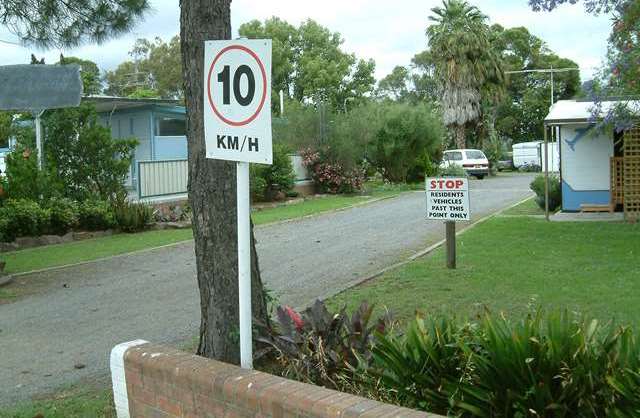 Part 6 of a series of posts based on nine principles for supporting permanent residents of caravan parks which are relevant to a range of other contexts. The first post introduces the context and lists the nine principles.
Part 6 of a series of posts based on nine principles for supporting permanent residents of caravan parks which are relevant to a range of other contexts. The first post introduces the context and lists the nine principles.
The park we visit is 15 km from the community health centre, Centrelink, other agencies and the main shopping area. Only a third of the households have a registered car and the taxi fare is $85 return. If residents want to use public transport they have to catch the school bus (out in the morning and back in the afternoon) then a train and bus (about 2 hours each way). When we first started visiting the park there were 26 children and very few residents were accessing child health services. By going to the park we have been able to address a range of health issues, increase immunisation rates and assist families to access other health services.
Child and family health nurse
Forum participants spoke about the importance of outreach to caravan parks and providing programs within the park communities in order to maximise participation by residents. On parks with large numbers of marginalised residents there can be high levels of disadvantage and suspicion of service providers. By going to caravan parks, residents have the opportunity to develop relationships at their own pace and services can develop a positive reputation in the park. At times, off-site activities can work (especially if transport is supplied), although services generally found that service provision in the park was more successful.
For a while we tried running a playgroup in a community centre less than 300 metres away from the caravan park. We ended up returning to the park (even though the park had no community facilities except for two rickety picnic tables) because the residents didn’t come over to the community centre.
Community worker
Implications for practice include the following:
Services will actively seek out residents
Because many residents are suspicious of service providers, staff often find they need to actively seek out residents rather than waiting for residents to come to them. Services adopting assertive outreach use a variety of strategies including:
- Door knocking within the park
- Organising a weekly supply of bread and other bakery products they can distribute to residents
- Being highly visible (e.g., having colourful vans for playgroups)
- Asking managers if there are any new residents or residents who could do with a visit
- Providing health clinics or other services that attract residents
- Using children’s activities in the park as a way to engage with families
- Organising park fun days or other social events.
A family with a four-year-old daughter moved onto the park. When we visited them we received a cool but not hostile reception. Each week we dropped in and invited them to the playgroup or just to come over for a coffee but they didn’t take up the offer. We checked with them that they didn’t mind us dropping in and they said it was OK. After nearly three months of visiting them, they finally started coming and slowly became one of our most regular and consistent families.
Community worker
Services will have permission from park management to run programs on the park
As discussed previously, caravan parks are private property and in order to run programs on parks, services need the permission of park management.
If you liked this post please follow my blog (top right-hand corner of the blog), and you might like to look at:
- 9 principles for supporting families and communities
- Principle 1: Services will make building strong relationships with residents a high priority
- Playgroups as a foundation for working with hard to reach families
- “I try and make it feel more like a home” – families living in caravan parks
- Building relationship between caravan park (trailer park) residents and school
- Families with children living in caravan parks


I live on a caravan park,and we are not allowed to have our shopping delivered or leaflet dropping,feels like a prison camp
LikeLike
Thanks for comment. Sometimes residents can challenge rules like this, but it can be tricky.
LikeLike